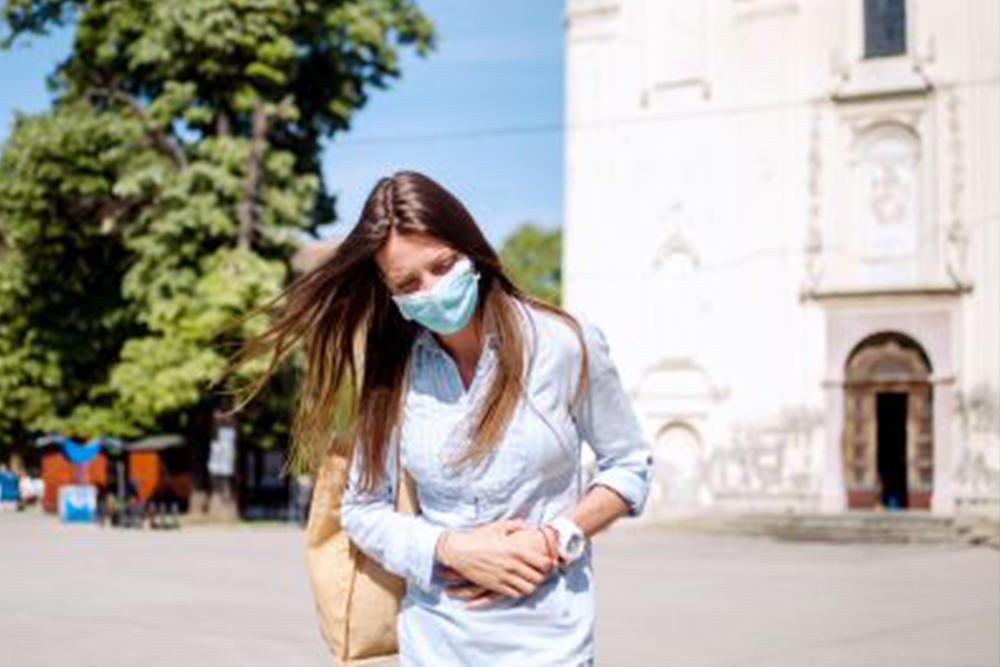Diarrhea on trips is the most common health problem on the road. The closer to the equator and the less civilized the country, the greater the risk that diarrhea will deprive you of a few days of vacation. What can be done so that this is not your case, and how to act if you get sick?
What causes diarrhea while traveling?
Diarrhea during travel is defined as loose stools from 4 to 10 per day. It usually lasts 3-5 days, but there are cases when it lasts several weeks. Diarrhea during travel can be caused by bacteria, viruses, or protozoa. Most often it is caused by the bacterium E. coli (enterotoxigenic), which usually enters the body with contaminated food or water.
Food at the market
Is it possible to prevent diarrhea on the road at all?
Sure. The basis for the prevention of diarrhea during travel in high-risk areas is the observance of hygienic principles, which for better memorization can be indicated by the number “six O”, where the eyes mean: Shop, Original, Open, Clean, Wash, Boil.
In particular, these rules are as follows:
drink only drinks (including milk) in the original packaging, preferably imported from developed countries,
otherwise drinks only from boiled water (tap water may be unsafe), do
not use ice in drinks,
fruit-only eat peeled fruits or should be washed with clean water
do not eat raw vegetables,
do not eat ice cream and raw food
do not eat raw meat, fish, sea animals
do not buy food from street vendors,
to avoid unknown surface water (washing, bathing, brushing teeth, and just washing limbs),
do not swim in the sea near the mouth of the sewer,
avoid contact with freely moving animals.
How to treat diarrhea while traveling?
Despite strict adherence to hygienic principles, you can get diarrhea. The basis of treatment is sufficient hydration and taking antidiarrheal medications.
Here are the recommendations on the points:
Fill up the missing liquids by drinking a sufficient amount of bottled or boiled water.
Limit the consumption of drinks and food to tea, non-carbonated drinks, or drinks without bubbles, as well as unsalted low-fat cookies or dry white bread. As soon as you have an appetite again, it is recommended to start with regular baking first.
Seek medical attention at temperatures above 38°C if you have blood or mucus in your stool, severe vomiting that can lead to dehydration, or if diarrhea lasts more than 48 hours.
To relieve symptoms, take over-the-counter diarrhea medications, which should be included in every traveler’s first aid kit.
What antidiarrheal medications should I take with me on a trip?
There should always be antidiarrheal remedies in the first aid kit. In regions with an increased risk of diarrhea, the traveler should be provided with a product that reduces the amount of stool (loperamide), intestinal disinfectants (chlorotoxin), and PRS, that is, a powder for preparing a solution for rehydration. Before using an antidiarrheal medication, carefully read the information leaflet.
In the treatment of diarrhea, it is also recommended to use probiotics to help repair the damaged gut microbiota. For more daring trips to places where there is no medical care, it is recommended to consult a doctor and prescribe antibiotics. Your doctor will instruct you in which cases to use them. Since hygiene is the basis for the prevention of diarrheal diseases, hand sanitizing gel, which you can always have with you, will be a practical help.

Leave a Reply